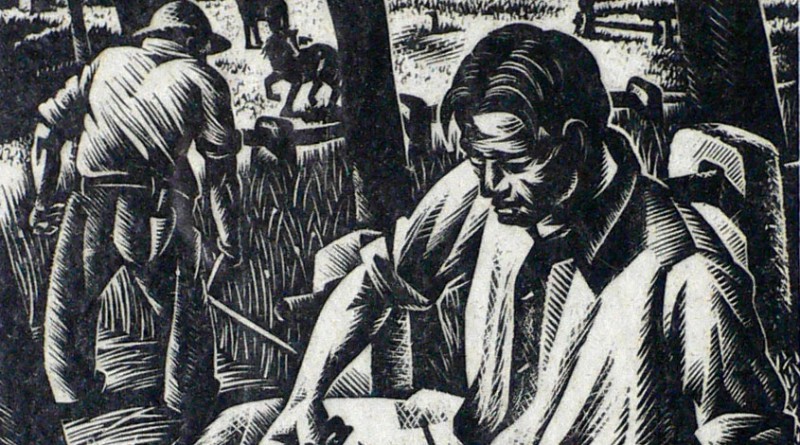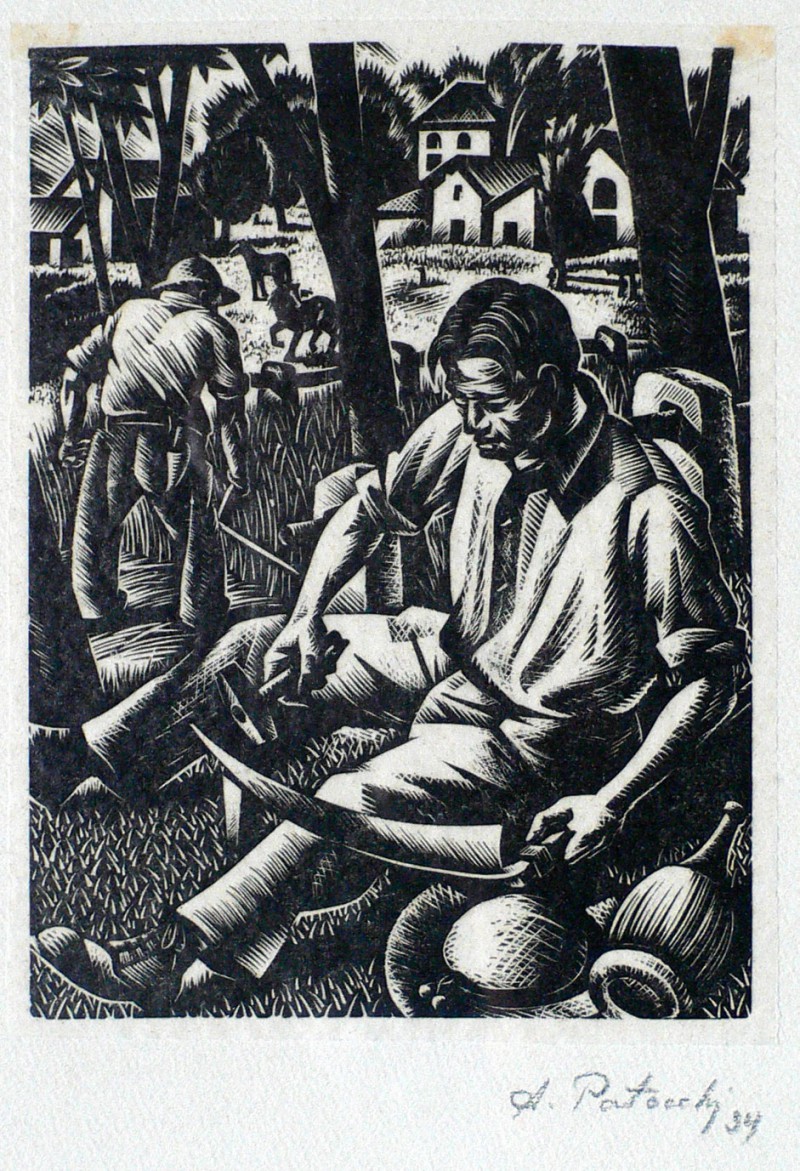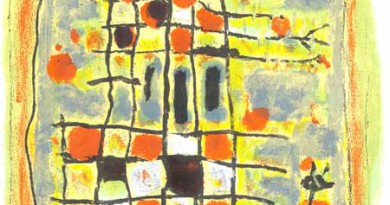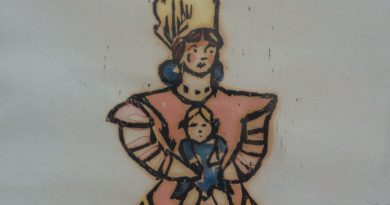Harvest – Art Deco Woodblock Print by Aldo Patocchi
Farmworkers at Harvest Time
A handsome farmer sits in the shade of a tree to sharpen his scythe. By his side is a flask of wine and a straw hat. Another farmer works in a field of wheat or grain behind him.
Art Deco Woodblock Print – signed in pencil by the artist and dated [19]34.
Condition: The engraving on Japan paper has been mounted against another sheep, and the glue that was used has yellowed slightly at the corners. This mounting was done by the artist, since his signature appears on the underlying sheet (not on the thin and delicate Japan paper used for the engraving).
Born July 22, 1907 in Basel - Died September 4, 1986 in Lugano
Aldo Patocchi was born in Basel and spent much of his life in Lugano in the Italian speaking region of Switzerland. He was the son of a Postal Service worker who became a union leader. Other members of his family were also active in worker's rights. He was known not only as an artist, but also as a journalist, art critic and man of culture, and also for many years Director of the art museums of Lugano.
Patocchi began his career as an illustator, but quickly made his name for the beauty of his wood block engravings done in a very personal style influenced by Art Nouveau. His preferred subjects were landscapes and farm life. During WWII, the Swiss Federal Council commissioned several stamp designs from him on the theme of agriculture. At the end of the war he worked with the photographer Hans Steiner on 5 additional stamps for the series "PAX."
Self-taught as a woodcut maker, he became one of the most skillful early 20th century practiioners of this medium. Patocchi was a founding member of the group Xylon, which brought together artists making woodblock prints. His work can be found in museums and collections throughout Switzerland and Italy, and during his lifetime was widely exhibited including at the Kunstmuseum de Winterthour, the Musée des Beaux-Arts du Locle, the University of Geneva, and the New York Central Library.





